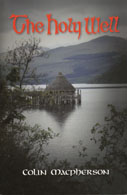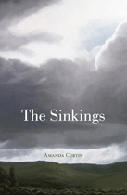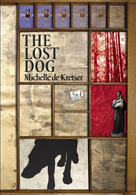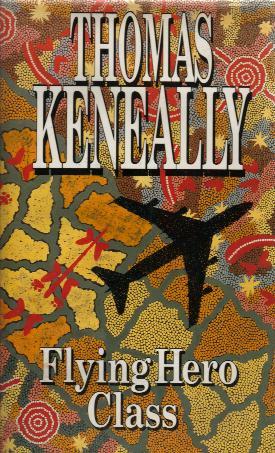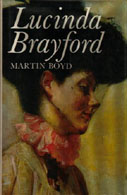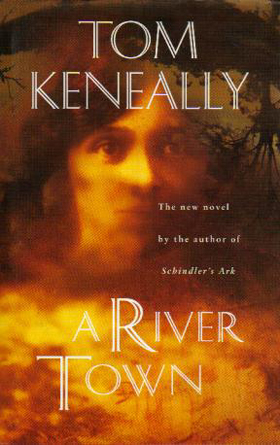The shortlists for the 2008 Queensland Premier's Literary Awards have been announced.
The shortlisted works are:
Science Writer Award
"Applying the paradox of prevention: Eradicate HIV", Bill Bowtell (Griffith Review)
Hail Caesar, Professor Caroline de Costa (Boolarong Press)
Cool Scientist, Stephen Luntz (Control Publications)
The Rise of Animals: Evolution and Diversification of the Kingdom Animalia, Dr Patricia Vickers-Rich, Mikhal A. Fedonkin, James G. Gehling, Kathleen Grey and Guy M. Narbonne (Johns Hopkins University Press)
Why is Uranus Upside Down? And other questions about the Universe, Professor Fred Watson (Allen & Unwin)
Literary or Media Work Advancing Public Debate - The Harry Williams Award
People Like Us, Waleed Aly (Pan Macmillan Australia)
John Winston Howard, Wayne Errington and Peter van Onselen (Melbourne University Publishing)
"No Jail for Rape of Girl, 10", Tony Koch (The Australian)
"Quarterly Essay Issue 27: Reaction Time", Emeritus Professor Ian Lowe (Quarterly Essay)
"In My Shoes", Quentin McDermott and Steve Taylor (Four Corners, The ABC)
Film Script - Pacific Film & Television Commission Award
"Elise", James Bogle (Film 2 Opportunity)
"Prime Mover", David Caesar (Porchlight Films)
"The Square", Joel Edgerton and Matthew Dabner (Film Depot)
"Punishment", Danny Matier (Glover Productions)
Drama Script (Stage) Award
"When the Rain Stops Falling", Andrew Bovell (Scott Theatre)
"Ruben Guthrie", Brendan Cowell (Company B)
"Toy Symphony", Michael Gow (Belvoir Street Theatre - B Sharp)
"The Serpent's Teeth", Daniel Keene (Sydney Theatre Company)
"The Seed", Kate Mulvany (Belvoir Street Theatre - B Sharp)
Television Script - QUT Creative Industries Award
"Bed of Roses", Jutta Goetze and Elizabeth Coleman (Ruby/Southern Star Ent. Pty. Ltd)
"Underbelly: Episode 7 - Wise Monkeys", Felicity Packard (Screentime)
"Stupid, Stupid Man, Episode 9 - The Black Dog", Timothy Pye (Jigsaw Entertainment)
History Book - Faculty of
Arts, University of Queensland Award
Van Diemen's Land, James Boyce (Black Inc)
Big White Lie: Chinese Australians in White Australia, Professor John Fitzgerald (University of New South Wales Press Limited)
Vietnam The Australian War, Paul Ham (HarperCollins Publishers Australia)
An Exacting Heart, Jacqueline Kent (Penguin Group)
Drawing the Global Colour Line Professor Marilyn Lake and Professor Henry Reynolds (Melbourne University Publishing)
Non Fiction Book Award
Arthur Boyd, Dr Darleen Bungey (Allen & Unwin)
An Exacting Heart, Jacqueline Kent (Penguin Group)
Muck, Craig Sherborne (Black Inc)
American Journeys, Don Watson (Random House (KNOPF))
Fiction Book Award
His Illegal Self, Peter Carey (Random House (KNOPF))
Diary of a Bad Year, J.M Coetzee (Text Publishing)
The Trout Opera, Matthew Condon (Random House (Vintage))
The Spare Room, Helen Garner (Text Publishing)
Breath, Tim Winton (Penguin Group Australia)
Poetry Collection - Arts Queensland Judith Wright Calanthe Award
Event, Judith Bishop (Salt Publishing/Inbooks)
Bark, Anthony Lawrence (University of Queensland Press)
Typewriter Music, David Malouf (University of Queensland Press)
The Australian Popular Songbook, Alan Wearne (Giramondo Publishing)
Australian Short Story - Arts Queensland Steele Rudd Award
Someone Else, John Hughes (Giramondo Publishing)
Camera Obscura, Kathryn Lomer (University of Queensland Press)
Redfin, Anthony Lynch (ARCADIA)
The End of the World, Paddy O'Reilly (University of Queensland Press)
Emerging Queensland Author - Manuscript Award
None of the Other Flies Follow My Crooked Lines, Simon Groth
Side Close Side; Stories of Love, Krissy Kneen
Learning How to Breathe, Linda Neil
Omega Park, Amy Vought Barker
Unpublished Indigenous Writer - The David Unaipon Award
10 Hail Mary's, Kate Howarth
White Elephant, Jeanine Leane
Every Secret Thing, Marie Munkara
Children's Book - Mary Ryan's Award
Jessica's Box, Peter Carnavas (New Frontier Publishing)
The Peasant Prince, Li Cunxin and Anne Spudvilas (Penguin Group Australia)
Collecting Colour, Kylie Dunstan (Lothian Children's Books an imprint of Hachette Livre Australia)
Crow and The Waterhole, Ambelin Kwaymullina (Fremantle Press)
The Worry Tree, Marianne Musgrove (Random House)
Young Adult Book Award
Requiem for a Beast, Matt Ottley (Lothian
Children's Books an imprint of Hachette Livre Australia)
Marty's Shadow, John Heffernan (Omnibus Books)
The Push, Julia Lawrinson (Penguin Group Australia)
Town, James Roy (University of Queensland Press)
At Seventeen, Celeste Walters (University of Queensland Press)
The winners will be announced on Tuesday 16th September.
